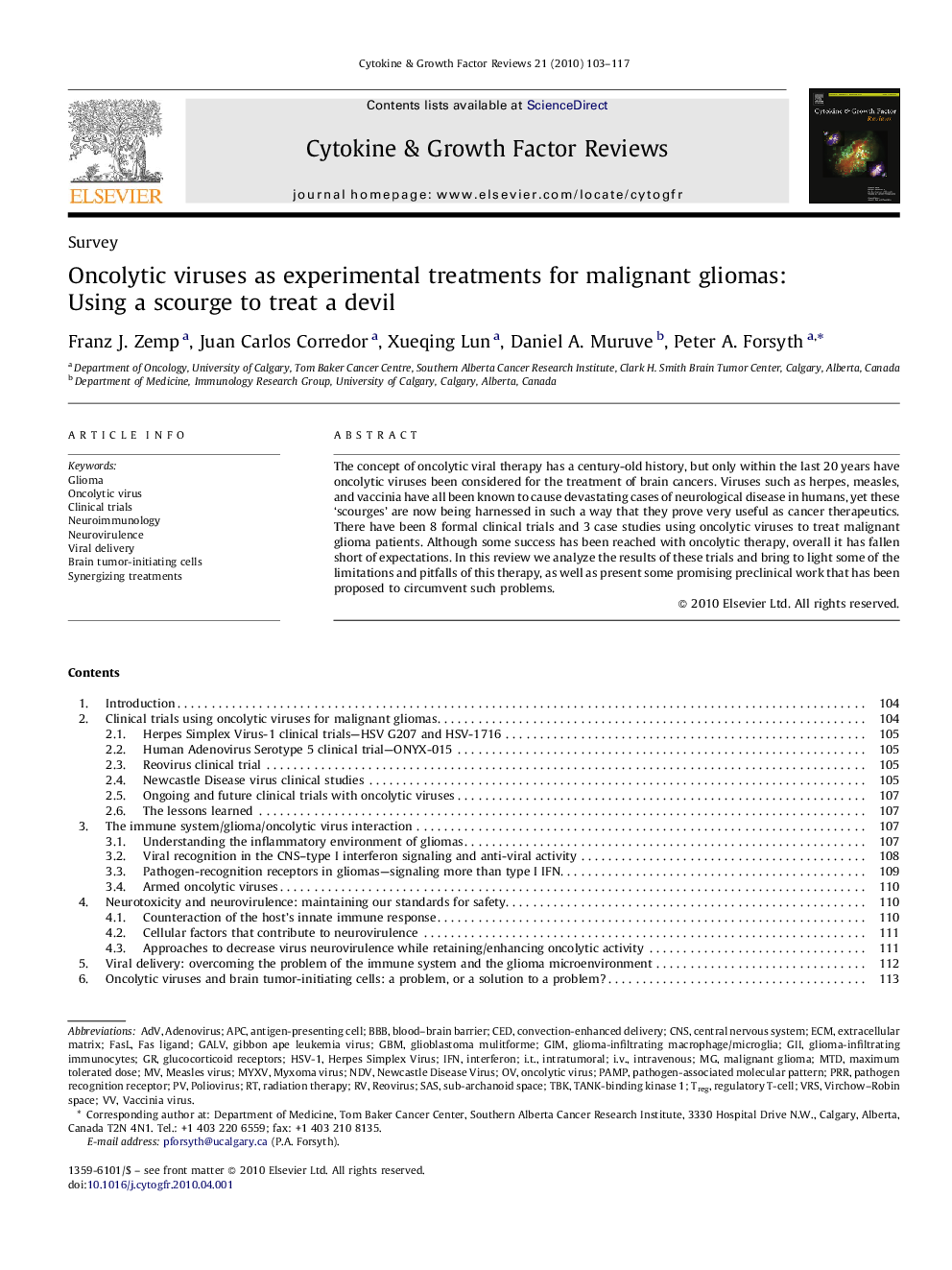| Article ID | Journal | Published Year | Pages | File Type |
|---|---|---|---|---|
| 2170693 | Cytokine & Growth Factor Reviews | 2010 | 15 Pages |
Abstract
The concept of oncolytic viral therapy has a century-old history, but only within the last 20 years have oncolytic viruses been considered for the treatment of brain cancers. Viruses such as herpes, measles, and vaccinia have all been known to cause devastating cases of neurological disease in humans, yet these 'scourges' are now being harnessed in such a way that they prove very useful as cancer therapeutics. There have been 8 formal clinical trials and 3 case studies using oncolytic viruses to treat malignant glioma patients. Although some success has been reached with oncolytic therapy, overall it has fallen short of expectations. In this review we analyze the results of these trials and bring to light some of the limitations and pitfalls of this therapy, as well as present some promising preclinical work that has been proposed to circumvent such problems.
Keywords
ReovirusGBMPAMPPRRi.v.ECMTregMTDHSV-1VRSNDVGIMGaLVGIIMYXVgibbon ape leukemia virusTBKVirchow–Robin spaceCEDAdVAPCSASIntratumoralAdenovirusClinical trialsantigen-presenting celli.t.pathogen-associated molecular patterninterferonIFNConvection-enhanced deliveryTANK-binding kinase 1Maximum tolerated doseIntravenousCNSBlood–brain barrierBBBRegulatory T-cellcentral nervous systemNeuroimmunologyFas LigandFasLExtracellular matrixOncolytic virusNewcastle disease virusMeasles virusMyxoma virusNeurovirulenceherpes simplex virusvaccinia virusRadiation therapyPoliovirusGliomaMalignant gliomapathogen recognition receptorglucocorticoid receptors
Related Topics
Life Sciences
Biochemistry, Genetics and Molecular Biology
Cell Biology
Authors
Franz J. Zemp, Juan Carlos Corredor, Xueqing Lun, Daniel A. Muruve, Peter A. Forsyth,
